This column is the G.O.A.T.
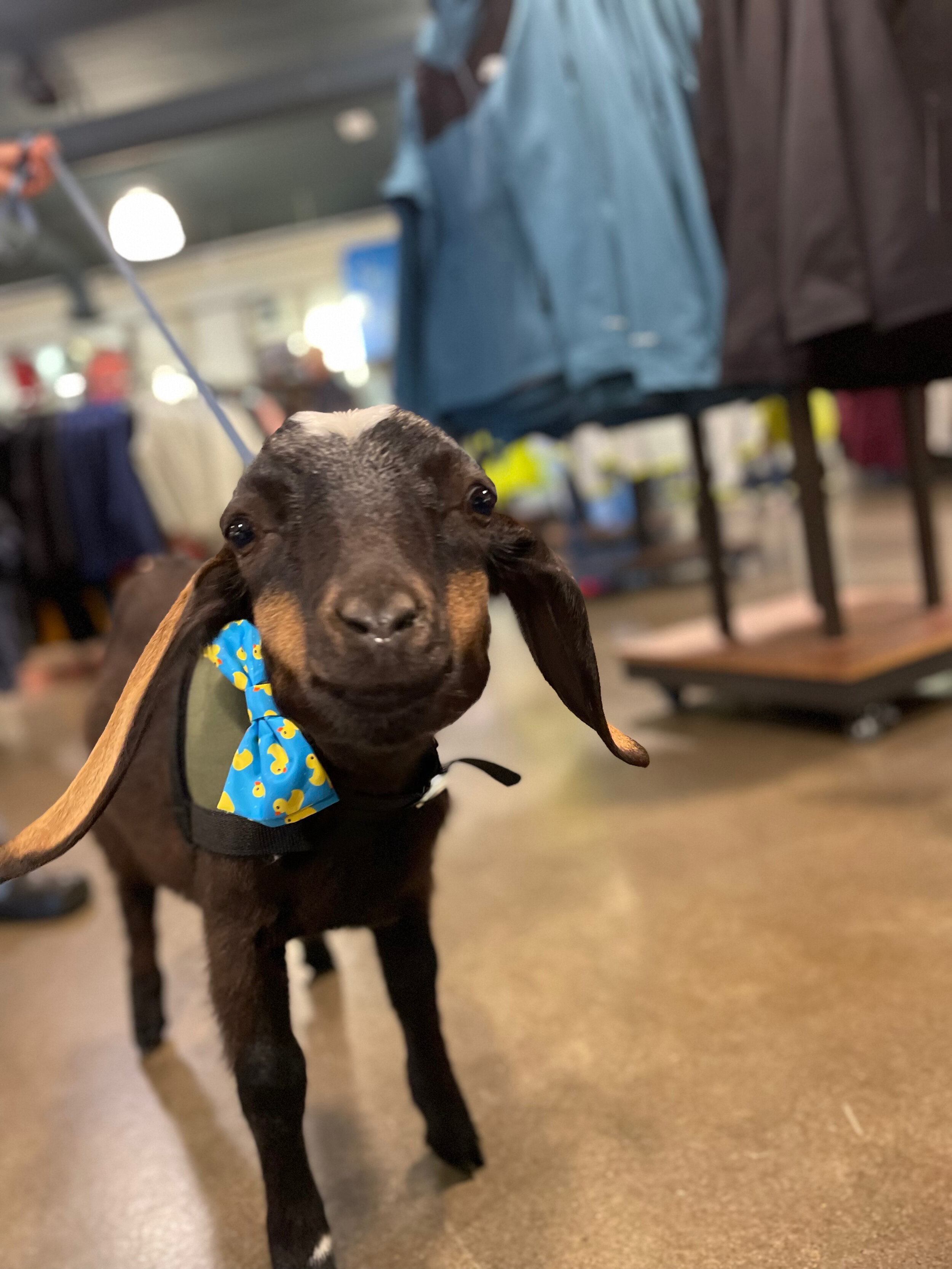
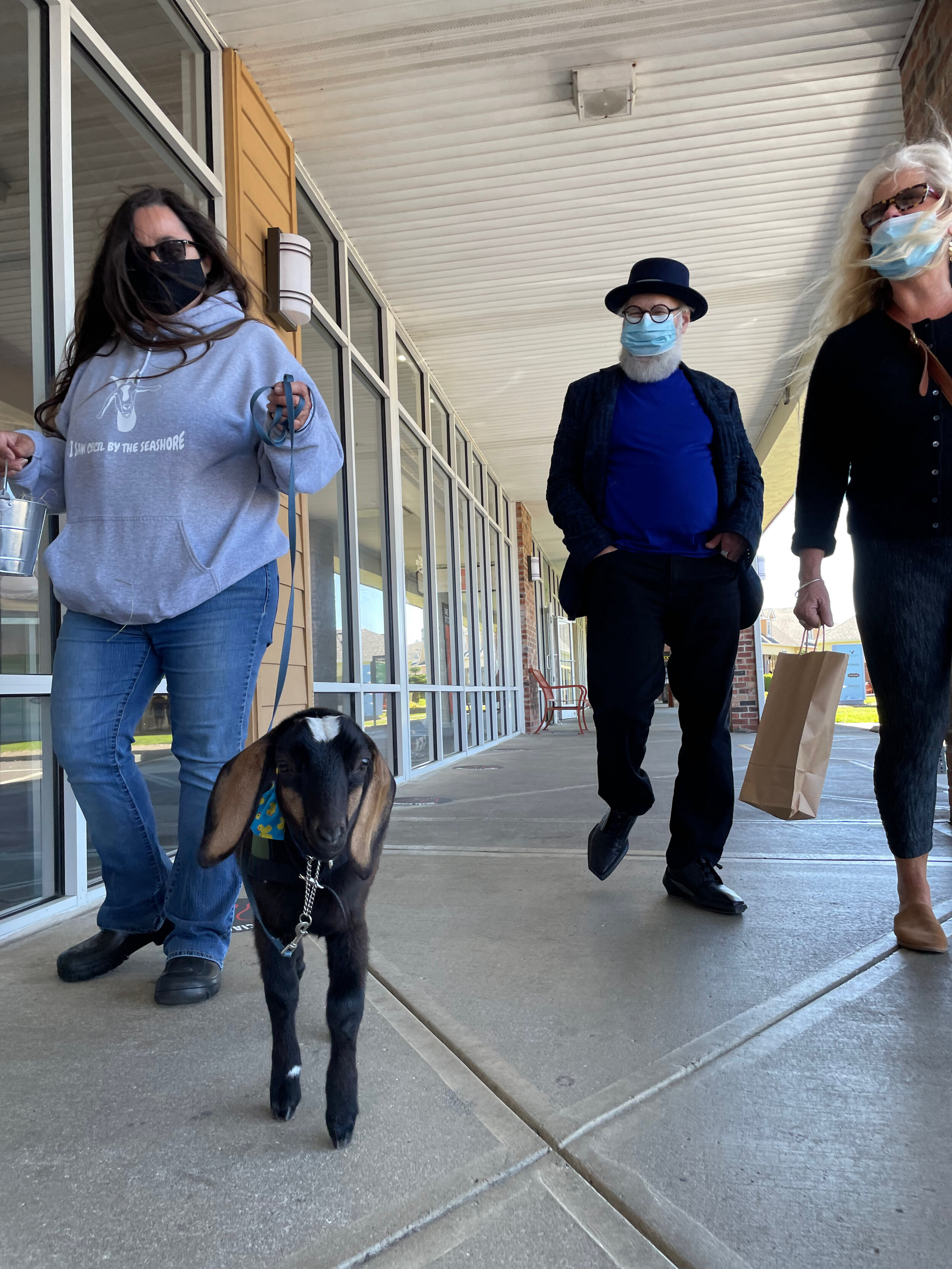
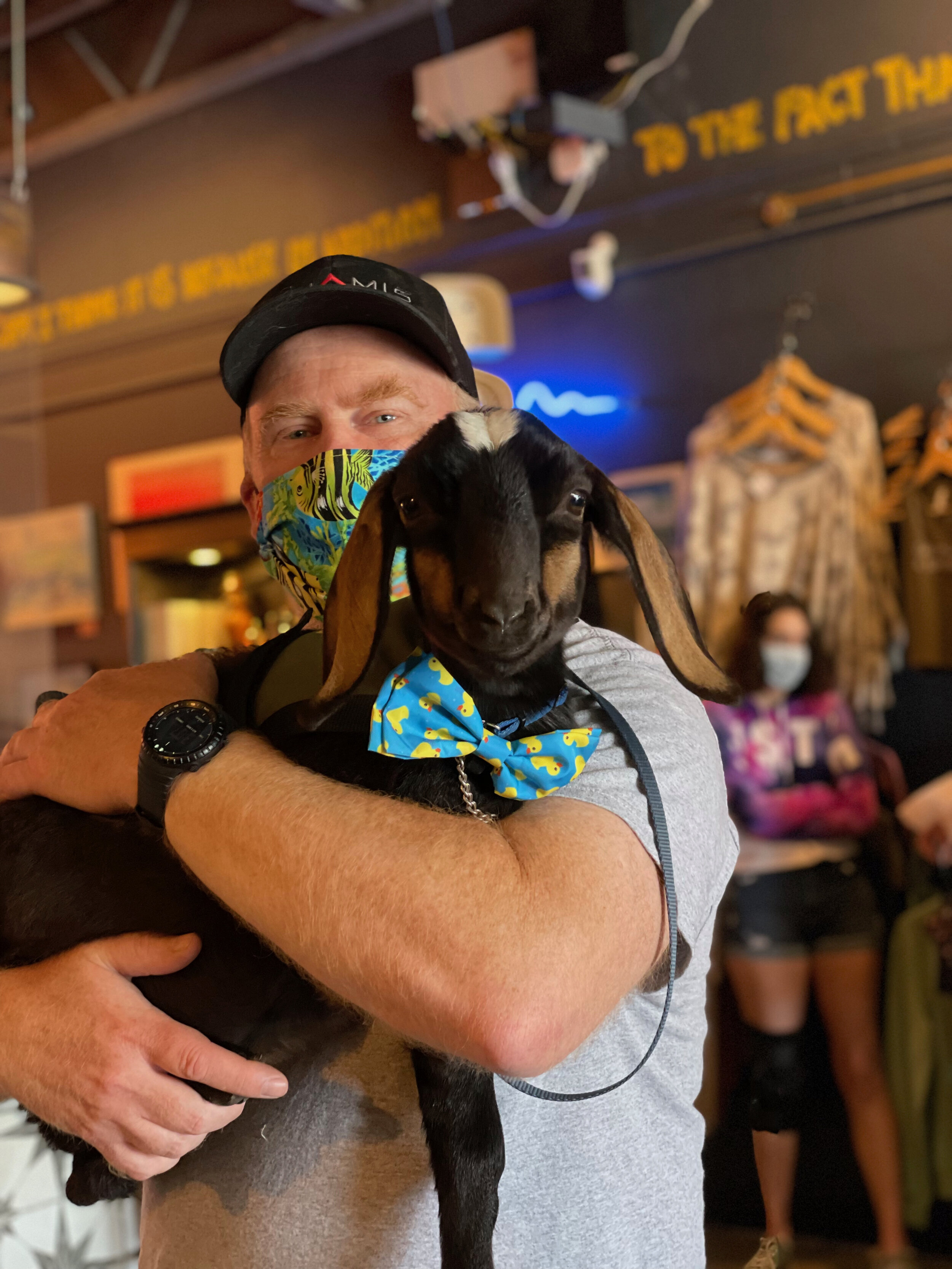
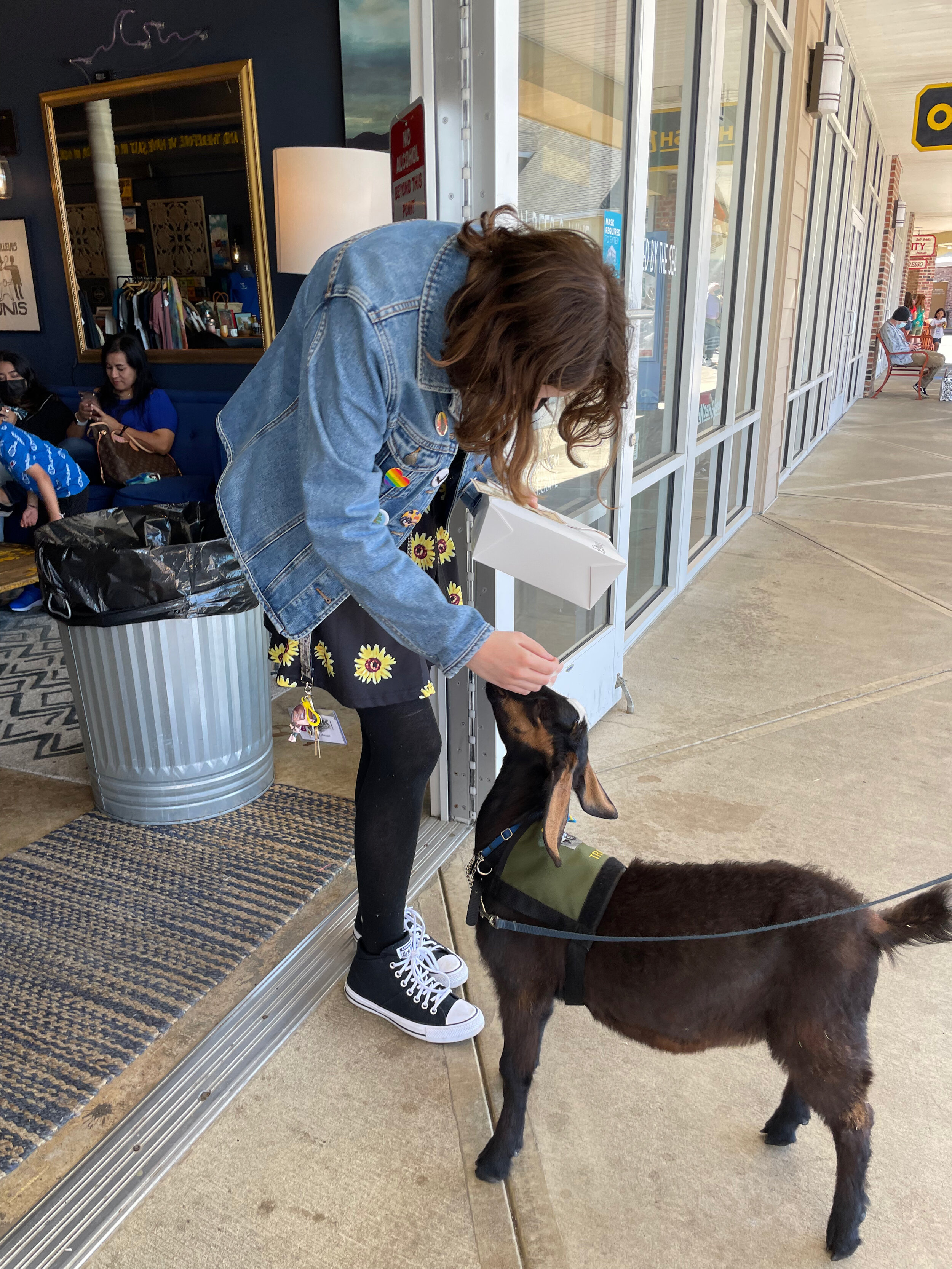
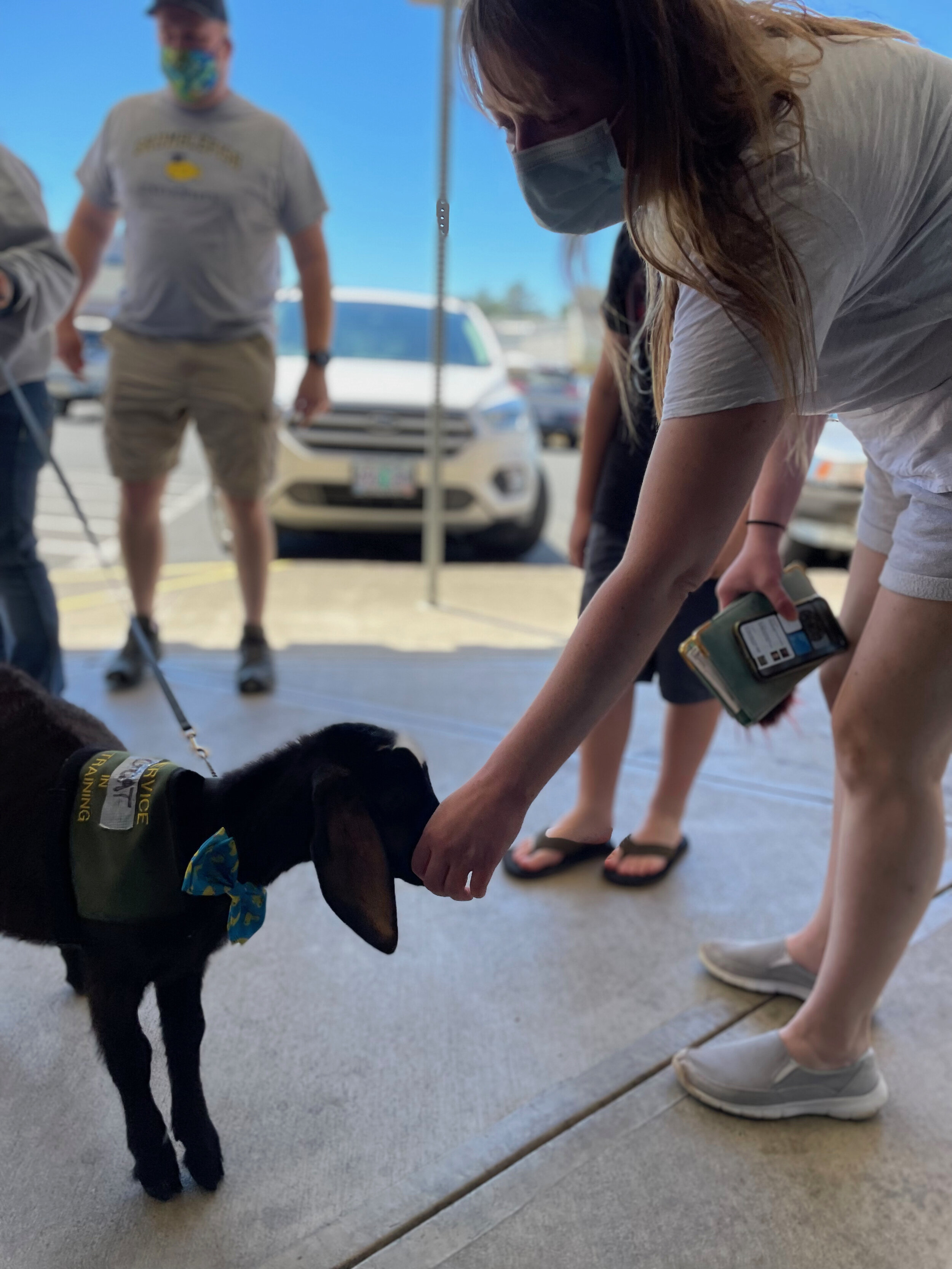
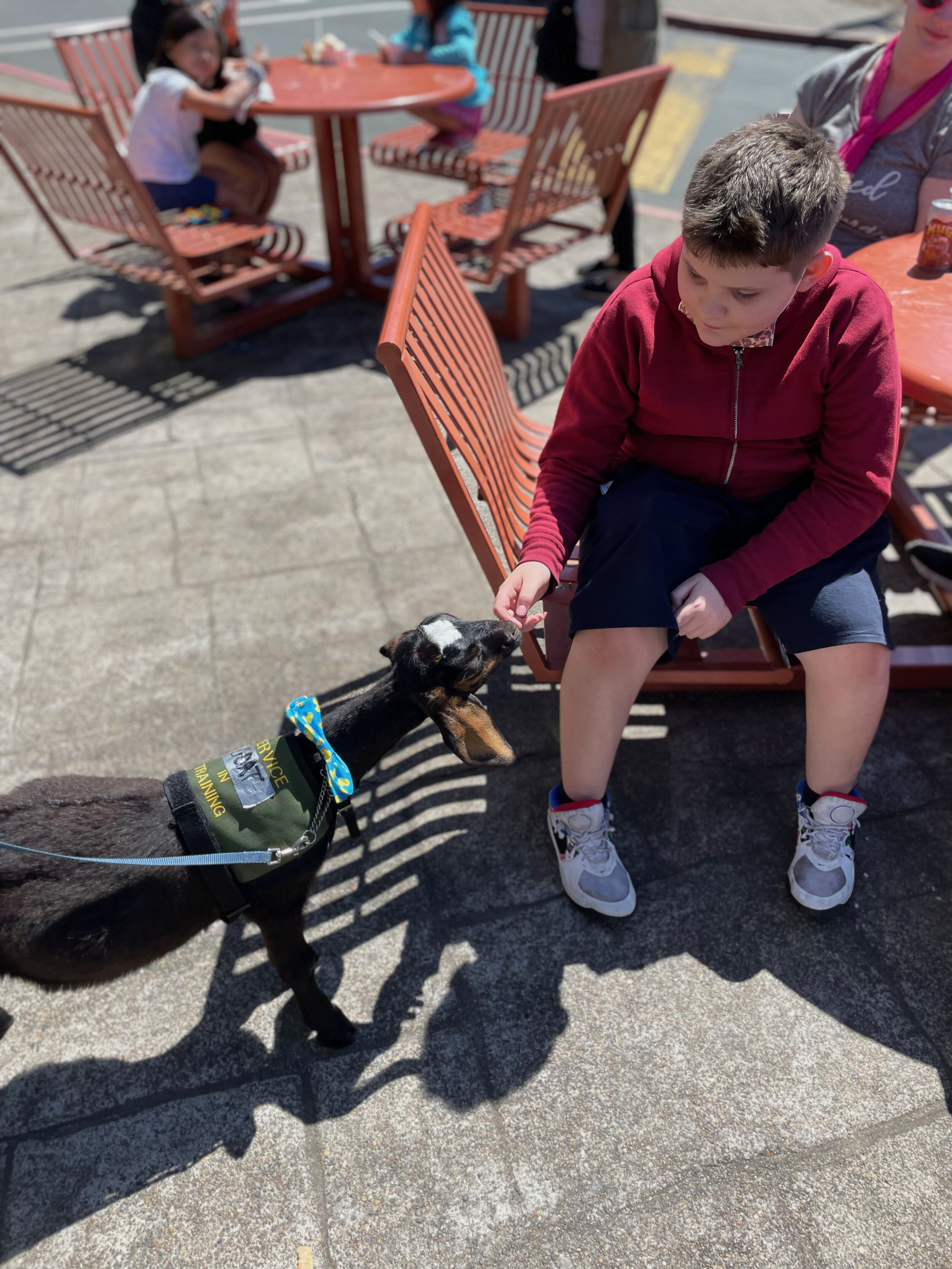
By Gretchen Ammerman
Oregon Coast TODAY
I challenge you to walk through a mall following behind a 14-month-old goat kid and not smile the whole time. Especially when you are with Cecil, a mini Nubian owned by Cindi Tringali and Lewis Smith, who not only tolerates but actually appears to enjoy going on outings around Lincoln City.
It’s that temperament, along with the reaction Cecil elicits from people, that Tringali is betting on with his service animal training.
“Goats are calm in nature and people are not intimidated by them the way they can be with dogs,” she said. “He will be able to help someone physically because they can lean on him and he can carry things in a pack; he can even pull a chair and we are getting a special cart made for him that one person can ride in.”
They might be putting the cart before the goat by investing in the equipment, though, because service goats are currently uncharted territory.
“I didn’t know it wasn’t possible, so I asked myself, “Is it possible?’” Tringali said.
“Either I’m crazy or a maverick, but it will be a great experience either way. Bonnie Bergin was the first person to really explore the idea of training dogs for service to humans with limitations, and many people thought it was nuts. She was living in a third-world country at the time and saw how animals like goats and horses helped people. That’s how she started Canine Companions for Independence.”
As a seasoned trainer of service dogs for people suffering with Post Traumatic Stress, in addition to “regular” dog training, Tringali has the chops to make this project a success.
In case you doubt the fitness of a goat to learn similarly to a dog, let's just clear up the first question that always comes up when Tringali and Smith describe the project.
“Yes, he is fairly well toilet trained at this point,” Tringali said. “He’ll do potty on command and knows to wait until he’s either outside or in his potty pen, which is filled with hay. He’s also learned recall, touch [putting his nose to an outstretched hand], name recognition and crate.”
The germ of the idea began when Tringali’s daughter was in 4H and raised a few goats.
“She would take them for walks on a leash and play games with them,” Tringali said. “I hadn’t spent much time with goats before that, but I’ve been interested in how animals learn from a young age. After becoming a dog trainer, I also became fascinated by dogs’ ability to learn to help people and, about two years ago, I started getting an idea about whether a goat could do it. They are super smart and have the ability to learn similar to dogs, but they can also find food almost anywhere they go and they are very good at just standing around.”
Tringali is training Cecil as a service animal, not a therapy animal. There is, I learned, a difference.
“Therapy dogs can be taken into a care facility and help multiple people,” Tringali said. “A service animal is specific for the person and their particular challenges.” There is a wider range of things a service animal can do, which Tringali is exploring as she learns what her hooved kid is good at.
“They can smell well, so I considered medical alert,” she said. “We are training a medical alert dog right now and giving Cecil the same training to see how that goes. We’ll see who gets it first.”
The training includes trying to get the students to recognize cortisol, a stress hormone.
Smith is often on “field trip” duty when Tringali is training her clients’ dogs and finds the reactions to Cecil endlessly amusing.
“People will ask “‘Is that really a goat?’ Because they are so unsure of what they are seeing at first,” Smith said. “I’ve heard gruff macho men say, ‘That’s the cutest damn thing I ever saw.’”
People familiar with goats know them as highly social creatures that do not enjoy being an only goat, but Tringali says Cecil seems to be very happy with their company and his three canine “siblings.”
“Every morning I take them all out to potty together and for an hour or two they are all out there together although Cecil does tend to spend most of the time gardening.”
Tringali also makes sure he has things to keep him mentally stimulated.
“I buy him parrot toys because they are sturdier,” she said. “He figures them out really fast.”
Cecil’s namesake is Tringali’s uncle, a very nice, calm man who was always smiling and always there for her.
“Cecil is the bringer of joy — when you see him you can’t help but smile,” Tringali said.
“In the service animal world, the dog is considered a bridge when the disability might create a barrier. Cecil will make a great bridge.”
